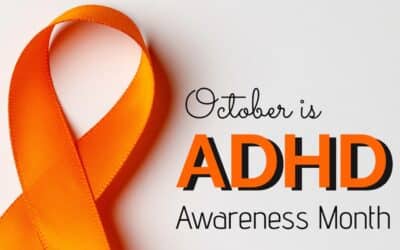Whether you or a loved one are recovering from a mental health challenge, it is helpful to conceptualize the stages of recovery. Recovery looks different for everyone. For some people, recovery means being able to work and provide for themselves, while others view recovery as being able to return to doing things they enjoy. No matter what recovery looks like, there are often five stages of recovery and an optional sixth stage.
The Five Stages of Recovery
Stage 1: Acknowledgment and Acceptance
Stage 2: Learning and Understanding
Stage 3: Taking Action
Stage 4: Rebuilding and Growth
Stage 5: Maintenance and Ongoing Care
Before we discuss each stage in more depth, it is essential to note that in recovery, it is common to relapse and struggle along the way. These stages are mapped out to be linear, but it is normal for them not to feel linear. Someone might be on stage three, actively taking action, relapse, and find themselves at stage one of acknowledgment and acceptance.
Stage 1: Acknowledgment and Acceptance
This is often the hardest step because it takes self-evaluation and reflection to admit that something is wrong. Acknowledging that life has become unmanageable and accepting that it is time to do something about it takes courage. The foundation of step one is recognizing that there is an issue and that something needs to change for life to feel fulfilled again.
Along with acknowledgment comes acceptance. The biggest hurdle here is that people are often confronted with the stigma around people who struggle with mental health. Depending on how a person’s community accepts mental illness, this part of stage one can differ from person to person. If a person’s community is accepting and open, they might feel more supported, while someone whose community is less accepting might find it harder to advocate for their needs.
The final part of stage one is seeking initial help and getting a diagnosis. This usually means that someone reaches out to a mental health professional for an assessment and possibly even begins treatment to establish a treatment plan and diagnosis.
Stage 2: Learning and Understanding
Once there is an established treatment plan and diagnosis, educating oneself about the specific mental health condition(s) launches stage two. This might involve reading books about the diagnosis or listening to podcasts. For others, it might mean joining a support group to be around others who are living with a similar mental illness.
With education comes knowledge, and with knowledge comes understanding. Understanding triggers and decoding the diagnosis helps people on their journey to recovery because they feel more empowered. When exploring treatment options and what steps to take after a diagnosis, it is important that the client has insight into how the mental illness is presenting in their lives. When a client takes an active role in learning and understanding their diagnosis, they are able to advocate and take action in their recovery.
Stage 3: Taking Action
After the client accepts that they need help and understands not only why they need help but also what help might look like, the next stage is to take action. The foundation of this stage is committing to a treatment plan. This might involve a holistic approach. This approach might include consulting with a treatment team of professionals. It’s helpful when the treatment team is all in one place. LGTC Group has created a program that can help people all in one place because we understand how difficult it might be for someone living with mental illness to communicate across multiple agencies for support. However, if the treatment team is not all in one place, it might be helpful to establish an ROI or “Release of Information” between all the providers the client is seeing to ensure a cohesive treatment plan.
Along with an actionable treatment plan is a commitment to developing coping strategies and making lifestyle changes to support mental well-being. These are usually incorporated into the treatment plan, and the client can work alongside their professional treatment team to follow a regimen that meets their needs. The treatment plan can only go as far as the client is committed to recovery. It takes patience and dedication to one’s mental fitness to ensure action is taken moment by moment. One action at a time can lead to recovery.
Stage 4: Rebuilding and Growth
Life will undoubtedly look different when recovering from mental illness. It might mean that personal goals and values need to be redefined. Values work is a great place to start with a therapist as the primary value of someone in recovery differs from people who are not in recovery from mental illness—rebuilding a relationship with oneself is the foundation of stage four.
After doing the internal work to rebuild one’s self-worth and self-esteem comes rebuilding relationships and social connections. This might mean taking accountability for how the mental illness presented interpersonally in relationships when the illness was in control. But now that the client is taking ownership of their life, as they make amends and develop a sense of community again, they might find this phase of step four, as difficult as it might be, brings a sense of peace as the relationships in their community begin to heal.
The final piece of stage four is to develop new skills and interests. This will look different for everyone, but sometimes, self-discovery is about how open a client is to discover new hobbies. Growth comes from being outside our comfort zone, which is typically scary, but you never know what you might enjoy if you try something new.
Stage 5: Maintenance and Ongoing Care
In the final stage of recovery, the client establishes routines for continued well-being. This means remembering what life felt like before stage one and using that as fuel to stay committed to ongoing care. For some people, recognizing and managing triggers will help maintain their growth. Still, for others, it might be a commitment to self-discovery and understanding that if life becomes unmanageable again, they have the tools and the community from new people and rebuilt relationships for support.
It is imperative that a person in recovery continues with regular check-ins with mental health professionals and makes changes to treatment plans as needed. Remembering that self-compassion begins with conceptualizing that this path to recovery would be hard for anyone. Self-compassion may be the key to recovery.
What Comes After Recovery?
Optional Stage 6: Helping Others and Advocacy
We touched on support groups being a possible approach to early recovery. Support groups are not only for people suffering from mental illness but also for people who have recovered, to share their stories and instill hope in people who are just beginning their journey. Inspiring other’s helps remind the person in recovery how far they have come on their path to recovery.
Some people find that participating in mental health awareness initiatives and advocating for better mental health resources and policies is a helpful way to stay committed to their recovery goals and enacting the change they want to see in the world.
In Conclusion
Before we shared the stages of recovery, we shared that recovery is not linear. It is not only okay for someone to relapse, but it is a part of recovery. Every relapse brings more insight for the client to understand better how the diagnosis presents in their lives—but staying hopeful that recovery is possible and sustainable with commitment and never giving up.










